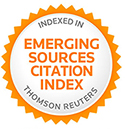Los grupos en las organizaciones empresariales: sistemas dinámicos, complejos y adaptativos
Resumen
Esta investigación se centra fundamentalmente en el estudio del desarrollo grupal y en el modelo de complejidad de tareas que
se lleva a cabo en las organizaciones. Los grupos en los contextos organizacionales han cobrado relevancia desde mediados del siglo XX; algunos autores estudiaron su naturaleza, organización y dirección, otros se han interesado en las técnicas que utilizan mientras que otros se han preocupado de su formación, cuáles son los procesos y cómo funcionan entre otros. Partiendo de los planteamientos de Meneses (2004) y Ortega (2004) para elaborar un modelo teórico sobre el nivel de desarrollo grupal, y el modelo de complejidad de tarea planteado por Díez (2005), el propósito de este estudio se centró en el análisis de los diversos modelos grupales de cara a tres dimensiones: la primera tiene su enfoque en el nivel de desarrollo grupal, la segunda en el de complejidad de la tarea (2005), y la tercera a la efectividad grupal defendida por Alcocer (2003). El estudio empírico centra su interés en conocer el alcance que tienen estos tres factores en lo que respecta al grupo como actor protagonista en las organizaciones. Se pretende, por tanto, responder a interrogantes tales como ¿es el nivel de desarrollo grupal un determinante de la efectividad alcanzada por el grupo?; ¿actúa el tipo de tarea como variante mediadora entre el nivel de desarrollo grupal y la efectividad del grupo? Estos interrogantes serán abordados por medio de un estudio empírico en el parque industrial venezolano (Valencia), para lo cual se escogerán 40 grupos formales que operen en empresas industriales del ramo sector de industrias diversas. En este sentido, para el desarrollo empírico de esta investigación se hizo necesario realizar un abordaje teórico de los planteamientos que se tienen de diversos modelos de grupos que están operando en las empresas logrando, de esta manera, una visión compleja y global en los niveles de evaluación e intervención de los grupos en el contexto organizacional-empresarial.
Abstrac
The groups in the enterprise organizations: dynamic, complex and adaptative systems
A theoretical approach since the study of diverse models
This investigation is centered fundamentally on the study of group development and on the complexity of tasks model that is carried out in the organizations. The groups in the organizational contexts have gained relevance since the middle of the 20th century; some authors studied their nature, organization and direction, others have been interested in the techniques that uses meanwhile others have worried about their formation, which are the processes and how they work between others. Resting on authors’ proposals
as Meneses (2004) and Ortega (2004) to elaborate a theoretical model on the group development level, and the task complexity model proposed by Díez (2005), the purpose of this study was focused in the analysis of different group models taking into account three dimensions: the group development level, the task complexity and the group effectiveness (Alcover, 2003). The empiric study centers its interest in knowing the reach of these three factors concerned to the group as protagonist actor in organizations. It is tried therefore to answer queries such as: Is the group development determinant of its achieved effectiveness? The task type acts as a mediator variable between the group development and its effectiveness? These queries will be approached through an empiric study an the Venezuelan industrial park (Valencia), in which it will be chosen 40 formal groups of industrial companies from a diverse type of industry sectors. In this sense, for the empiric development of this investigation it was necessary to carry out a theoretical approach of the existing proposals of different group models that are operating in these companies, achieving this way a global and complex vision in the levels of evaluation and intervention of the groups in the organizational-managerial context.
Key words: work groups, task, group effectiveness
Palabras clave
Texto completo:
PDFP-ISSN 1317-8822 E-ISSN 2477-9547
DOI: https://doi.org/10.53766/VIGEREN
Twitter: @VisionGerenci
Facebook: Visiongeren
Instagram: @visiongerenci
![]()
Todos los documentos publicados en esta revista se distribuyen bajo una
Licencia Creative Commons Atribución -No Comercial- Compartir Igual 4.0 Internacional.
Por lo que el envío, procesamiento y publicación de artículos en la revista es totalmente gratuito.
 |  |  | |
 |  |  |  |
 |  | | |
| | |||
